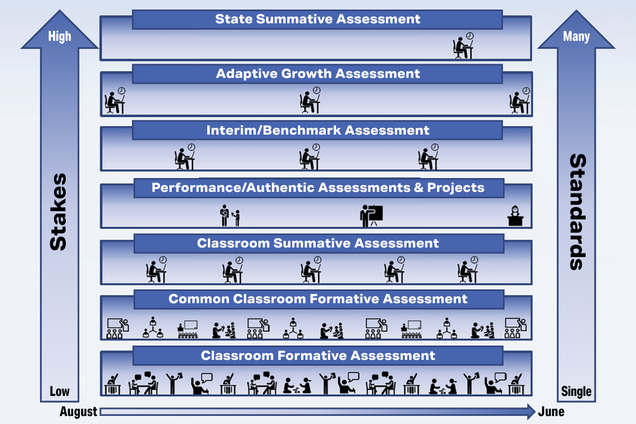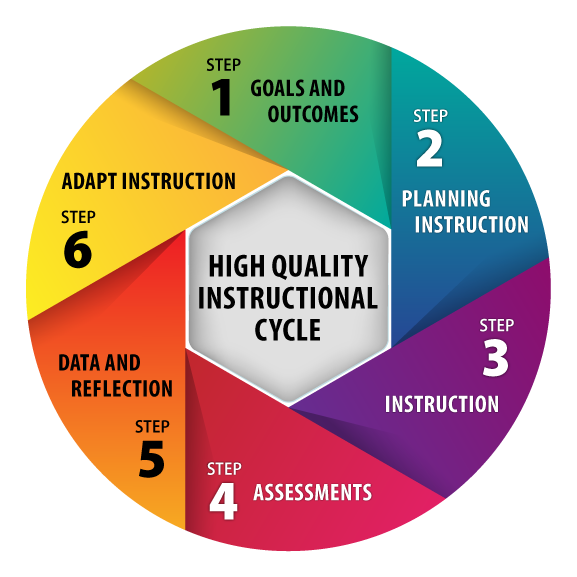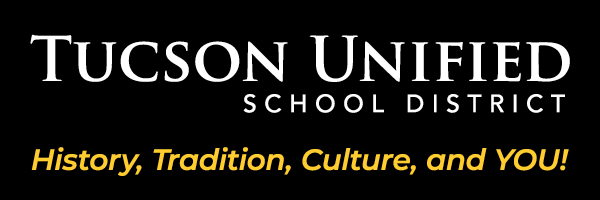We are housed under the leadership of the Curriculum and Instruction Department and works closely with the Curriculum Development and Professional Development teams.
We provide data support and statistical analysis to improve student educational outcomes in the Tucson Unified School District (TUSD). A&E’s primary responsibilities include:
- Oversight and administration of state/district assessments to guide instruction
- Professional development and training to increase data literacy
- Program evaluation to assess effectiveness and increase transparency of what works.
We evaluate student achievement data, student enrollment data, survey data, teacher evaluation data, principal evaluation data, and other data to monitor and report upon the progress of district initiatives. Additionally, A&E educates district stakeholders on state accountability requirements; provides direct support to District Administration, Schools, and other TUSD Departments; oversees the University High School admissions process; reviews all external data requests; and produces a variety of customized data dashboards for accessible data reporting.
Quick Guide to TUSD Assessments – this table shows the different tests students take, how often the different assessments are administered, and the types of information that each assessments provide.
Name and Purpose of Assessments at Tucson Unified
| Assessment Types |
Screener/Diagnostic |
Formative Assessment: Student |
Formative Assessment: Teacher |
Classroom Summative |
Interim/Benchmark |
End-of-Year/Course Summative |
| Tests |
DIBELS,
IReady / IXL |
Teacher-Created Classroom Assessments |
Teacher-Created Classroom Assessments |
End of Unit Tests |
Quarterly Benchmarks in ELA and Math |
State Tests (AASA, MSAA, AzSci, ACT Aspire, ACT) AP, IB, CTE, Civics |
| Frequency |
Periodically |
Daily -during learning and teaching |
Daily -during learning and teaching |
After an extended period (quizzes, end of unit or learning module) |
Across calendar periods (quarterly, semester) |
End-of-year, grade level, or course |
| Purpose |
Screener:
Identify students who may be at risk.
Monitor student progress.
Diagnostic:
Determine readiness for learning. |
Clarify learning goals and success criteria within a broader progression of learning.
Engage in self-assessment and peer feedback.
Monitor learning relative to learning goals. |
Clarify learning goals and success criteria within a broader learning progression. Elicit/analyze evidence of student thinking. Monitor student learning relative to learning goals. Monitor progress with respect to targeted interventions. Inform instruction and improvement. |
Inform instruction and improvement. Evaluate attainment of learning goals |
Track student learning relative to expected learning goals. Predict end-of-year/course proficiency. |
Measure end-of-year/course proficiency Gauge student achievement of standards Gauge school or district progress relative to student achievement and growth |
This graphic describes the different assessment types that TUSD provides, how often the assessments are administered over the course of the school year, and if an assessment is high stakes (e.g. state assessment) or low stakes (classroom formative assessment) in terms of state accountability.
Assessment frequency, standards, and stakes.
| Assessment Type |
Frequency |
Standards |
Stakes |
| State Summative Assessment |
Once per year |
Many Standards |
Highest Stakes |
| Adaptive Growth Assessment |
3 times per year |
Many Standards |
High Stakes |
| Interime/Benchmaek Assessment |
3 times per year |
Many Standards |
Highe Stakes |
| Performance/Authentice Assessment & Projects |
3 times per year |
Several Standards |
Medium Stakes |
| Classroom Summative Assessment |
5 times per year |
Several Standards |
Medium Stakes |
| Common Classroom Formative Assessment |
Several per year |
Few Standards |
Low Stakes |
| Classroom Formative Assessment |
Several per year |
Single Standard |
Lowest Stakes |

How teachers use data in the classroom – Data driven decision-making is an essential part of the instructional cycle to help teachers make informed decisions that are targeted to the students learning needs and strengths.

High Quality Instruction Cycle
- Goals & Outcomes – Connect learning intentions and student success criteria to standards and student data; incorporate high expectations that take unique student characteristics into account.
- Planning Instructions – Consider the evidence-based curricular options available and plan strategies to personalize accommodate, scaffold, and activate background knowledge.
- Instruction – Incorporate student agency, customized supports, opportunities to read, write, speak and listen while providing multiple opportunities to show mastery over time.
- Assessments – Design and use formative assessment practices that are student-centered with multiple methods for demonstrating competency.
- Data & Reflection – Analyze and reflect on student errors and misconceptions, and outcomes; meet with collaborative teams and use a variety of data to reflect on instruction.
- Adapt Instruction – Adjust plans for instruction based on student needs by extending and deepending learning, providing appropriate intervention, and incorporating feedback.
Tucson Unified School District’s Gifted and Talented Education (GATE) program assesses students throughout each school year using the CogAT and the RAVEN’s assessment tools.
Students who meet qualifying criteria on these assessments are invited to participate in GATE.
Please visit GATE Program or GATE Testing for more information on these programs.
Discover University High School
University High School (UHS) is a National Blue Ribbon School and has consistently been ranked in the top schools nationwide. This rigorous school serves academically focused and intellectually gifted students. At UHS, we provide curriculum and social support not offered in the comprehensive high school.
Vision Statement
University High School will be the premier regional college preparatory school that serves academically focused and intellectually gifted students by providing a rigorous, challenging curriculum and by offering programs that reflect the diverse backgrounds, talents and cultures of our students within a supportive school-wide community.
School Questions - Curriculum, Activities, Tours
Katrina Messing – Recruitment Coordinator & Student Advisor
Email Katrina Messing
Admission Questions – Application, Qualifying, Entrance Exam
Dr. Dynah Oviedo – Admission Coordinator
Email Dynah Oviedo






